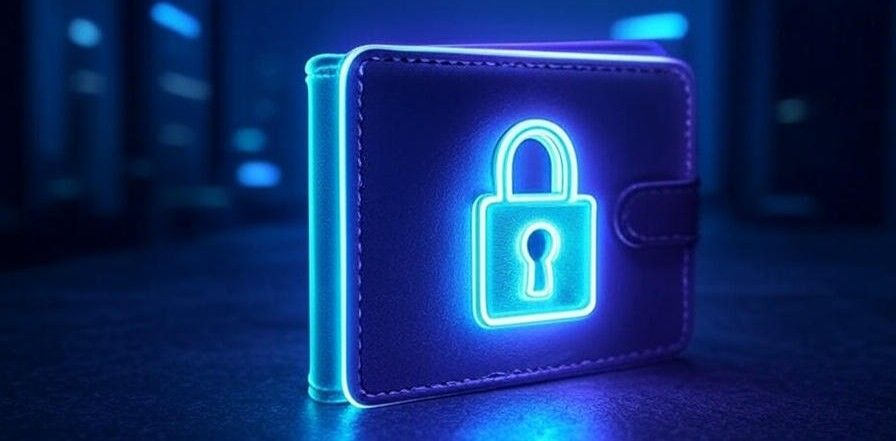The Most Secure Crypto Wallet Apps in 2025: Protecting Your Digital Assets


In 2025, the cryptocurrency landscape is more dynamic, and more dangerous, than ever. As adoption hits record highs, cybercriminals are matching the pace with increasingly sophisticated attacks. Your crypto wallet is no longer just a place to store coins, it’s your digital vault, and choosing the right one can mean the difference between safeguarding your wealth or losing it in seconds. This guide explores the most secure crypto wallet apps of 2025, comparing wallet types, highlighting must-have security features, and recommending top options based on independent audits, real-world performance, and expert advice.
Why security matters in crypto wallets
When it comes to cryptocurrency storage, security isn’t optional, it’s fundamental. Digital assets are bearer instruments, meaning that whoever holds the keys controls the funds. There’s no customer service to reverse a bad transaction, so protecting your wallet is protecting your wealth.
The rise of crypto threats and hacks
According to Business Insider, crypto scams caused $3.96 billion in direct losses in 2023, with scam-related revenue ballooning to $12.4 billion in 2024, a staggering 335% increase in just two years. Attackers now use deepfake videos, fake wallet apps, and highly targeted phishing campaigns to trick even experienced investors.
Importance of private keys and seed phrases
A crypto wallet doesn’t store your coins, it stores private keys and seed phrases that prove ownership and allow transactions. Lose them, and you lose your crypto. Leak them, and it’s gone forever. The BitKE 2025 Wallet Report found that over 20% of users have faced near-loss events due to poor seed phrase storage.
How a secure wallet prevents asset theft
Secure wallets use a layered defence model, combining hardware-based secure elements, offline key generation, multi-factor authentication, and transaction previews. This ensures that even if one security layer is breached, others remain to protect your funds.
Types of crypto wallets: which one is the safest?
Wallet types differ in how they store and protect keys, balancing convenience, cost, and security.
Hot wallets vs. cold wallets
Software wallets vs. hardware wallets
Custodial vs. non-custodial wallets
Multi-signature wallets for enhanced security
Key security features to look for in a crypto wallet
Not all wallets marketed as “secure” deliver in practice. Look for:
End-to-end encryption and secure backup
Encryption ensures that your wallet’s data is protected during transactions and while stored. Secure offline backups, such as seed phrases or recovery kits, are also critical for restoring access if your device fails or is lost.
Two-factor authentication (2FA) and biometric security
2FA adds an extra layer of protection by requiring a second form of verification, like an authentication app, hardware key, or biometric scan. This significantly reduces the risk of unauthorized access, even if your password is compromised.
Open-source vs. closed-source wallet security
Open-source wallets are regularly audited by the community, making vulnerabilities easier to spot and fix. Closed-source wallets, while still secure, rely on the provider’s internal audits, requiring more trust from the user.
Anti-phishing measures and scam detection
Look for wallets that offer anti-phishing features like URL verification, transaction previews, and dApp blocklists. These tools help prevent scams by allowing you to double-check transaction details and avoid malicious sites.
Best crypto wallet apps for security in 2025
As the crypto space continues to evolve, securing your digital assets is more important than ever. Here’s a look at the top wallet apps in 2025, each offering strong security, ease of use, and support for various cryptocurrencies.

Best for beginners: Exodus Wallet
Exodus is a top choice for beginners thanks to its straightforward, user-friendly interface. Designed with simplicity in mind, it ensures that even those new to cryptocurrency can easily navigate the app. Whether on desktop or mobile, Exodus makes it simple to manage your assets with its seamless setup process. It also includes a built-in exchange feature that allows users to buy, sell, and swap cryptocurrencies directly within the wallet, removing the need for third-party exchanges.
Additionally, Exodus offers educational resources to help users understand how to secure their assets and make the most of the wallet's features. This makes the learning curve far easier for those unfamiliar with crypto. The wallet also provides responsive customer support, which can be accessed via email or its extensive knowledge base. This combination of ease of use, helpful resources, and strong customer support makes Exodus a perfect starting point for anyone new to the world of cryptocurrency.
Best hardware-integrated wallet: Ledger & Trezor
For those looking for top-tier security, both Ledger and Trezor are the leading choices in hardware wallets, offering excellent offline protection for your cryptocurrency. By keeping private keys offline, these wallets ensure that your funds are safe from online threats such as hacks or phishing attacks.
Both wallets provide excellent protection, and the choice between them comes down to personal preference for features like mobile connectivity with Ledger or the open-source approach of Trezor.
Best multi-asset wallet: Trust Wallet
For users managing a diverse cryptocurrency portfolio, Trust Wallet stands out as the best option. It supports over 70 blockchains and offers seamless integration with decentralized applications (dApps), making it an ideal choice for those looking to store and interact with various digital assets. Trust Wallet’s simple interface and strong security features ensure users can easily manage their multi-asset portfolios.
Its open-source nature and commitment to security make Trust Wallet a reliable and flexible choice for users managing multiple types of cryptocurrencies.
Top cold storage wallets for maximum security
Cold storage wallets provide the highest level of security by keeping private keys offline, eliminating exposure to online threats. They are ideal for safely storing large amounts of cryptocurrency for the long term.
Best cold wallets for long-term crypto storage
When choosing a cold wallet for long-term storage, look for security, ease of use, and trusted features:
How to set up and use a cold wallet safely
Setting up a cold wallet correctly is crucial for maintaining security:
- Buy from Authorized Vendors: Ensure you purchase from the official manufacturer or an authorized reseller to avoid counterfeit devices.
- Verify Firmware Authenticity: Check the wallet’s firmware to ensure it hasn’t been tampered with before setting it up.
- Install the Official App & Follow Setup Instructions: Download the wallet's official application from the manufacturer’s website.
- Generate Keys Offline: Always generate your keys offline to avoid exposure to online threats.
- Store Recovery Phrases Securely: Write down your recovery phrase and store it in multiple secure, offline locations like a safe or a bank deposit box. Never store it digitally.
- Complete the Final Connection Process: After installing the app, follow the on-screen instructions to securely connect your cold wallet to your device. This will finalize the setup and allow you to start managing your crypto.
For additional help, check the wallet manufacturer’s website or user guides for further details on managing and troubleshooting your device.
How to protect your crypto wallet from hacks and scams
As cryptocurrency grows in popularity, the risks associated with wallet hacks and scams are ever-present. Implementing strong security practices is critical to protecting your assets. Here are the best practices to minimize your exposure to potential threats.
Best practices for setting strong passwords and PINs
A strong password is the first line of defense against unauthorized access to your wallet. Always use long, unique, and random credentials, with at least 16 characters. Avoid reusing passwords across different accounts and never store them in cloud-based services, as they can be hacked. Consider using a password manager to store and generate complex passwords securely.
How to identify and avoid phishing attacks
Phishing attacks are one of the most common ways hackers gain access to wallets. Always double-check URLs before entering sensitive information and never click on links from unsolicited emails or messages. Additionally, verify all transaction details carefully before signing them. Even a small mistake can lead to devastating losses.
The role of VPNs and secure internet connections
Using a reputable Virtual Private Network (VPN) is one of the most effective ways to secure your internet connection while using your crypto wallet. A VPN encrypts your internet traffic, making it much harder for hackers to intercept data. When combined with other security measures, a VPN provides a strong defense against surveillance and man-in-the-middle attacks.
How to safely store and backup your recovery phrase
Your recovery phrase is the key to restoring your wallet if you lose access. It is critical to store it securely and never share it with anyone. Write it down offline and keep it in multiple secure locations, such as a safe or bank deposit box. Avoid storing it digitally to prevent hacking attempts.
Choosing between mobile, desktop, and web wallets
When selecting a crypto wallet, it's important to understand the differences in security, convenience, and use case between mobile, desktop, and web wallets. Each type of wallet has its strengths and trade-offs, making it essential to choose the one that fits your needs.
Security differences: mobile vs. desktop vs. web-based wallets
Each type of wallet comes with its own set of security considerations:
Pros and cons of using a mobile wallet for daily transactions
Mobile wallets are ideal for everyday use due to their portability and ease of access. They are often NFC-enabled, allowing for quick transactions in person, and they offer a user-friendly experience.
However, the downside lies in their vulnerability to malware and the risk of physical loss. If your phone is compromised, your mobile wallet could be too. To mitigate these risks, it’s essential to use additional security measures, such as strong passwords and biometric authentication.
Best desktop wallets for advanced security features
Desktop wallets are often the best choice for those who prioritize security. They provide greater control over private keys and encryption methods compared to mobile and web wallets. For maximum protection, desktop wallets can be paired with hardware devices that provide local transaction signing, preventing malware from accessing your private keys. Additionally, many desktop wallets are open-source, offering transparency and a higher level of trust.
Are web-based wallets safe for storing large amounts?
Web wallets are convenient but not suitable for storing large amounts of cryptocurrency. Due to their exposure to online threats, they are best used for small balances that are actively traded or for quick access to funds. For long-term storage of significant assets, it's advisable to use cold storage options, like hardware wallets or paper wallets, which keep your private keys offline and offer far greater protection against hacking and phishing attempts.
The future of crypto wallet security: what to expect in 2025 and beyond
As we move into the next era of cryptocurrency, wallet security will need to adapt to rapidly evolving technologies and new threats. In the coming years, emerging innovations such as AI, quantum computing, and decentralized identity systems will play pivotal roles in securing digital assets, providing more robust protection and better user control than ever before.

The impact of AI and blockchain security innovations
AI is revolutionizing wallet security by enabling proactive threat detection. Machine learning algorithms can monitor transaction patterns and identify unusual activity, such as unexpected transaction amounts or behaviors. This allows wallets to respond to threats before they escalate, reducing the likelihood of losses. Additionally, blockchain-based authentication systems use cryptographic methods to ensure that only authorized users can access a wallet, enhancing security by eliminating the reliance on centralized authorities.
How quantum computing could change wallet security?
Quantum computing poses a significant future threat to current cryptographic systems, which rely on complex mathematical problems that may be solvable by quantum computers. To mitigate this risk, post-quantum cryptography is being developed. This new type of encryption will use algorithms that quantum computers can’t easily break, ensuring that wallets remain secure even in the age of quantum computing. Post-quantum cryptography will be essential for safeguarding digital assets from future decryption threats, keeping wallets secure for the long term.
Decentralized identity and authentication trends
Decentralized Identity (DID) wallets are set to transform how digital identities are verified. With DID, users can control their own identity data, reducing the need for centralized authorities and giving them greater privacy and security. This shift ensures that users, rather than third parties, manage their authentication, minimizing the risk of identity theft or unauthorized access. DID wallets will play a key role in creating a more secure and private user experience by removing single points of failure in identity management.
Predictions for the safest wallet technologies in the future
Expect wider adoption of threshold signatures, hardware security mLooking ahead, the most secure wallets will likely incorporate advanced technologies such as threshold signatures, hardware security modules (HSMs), and quantum-resistant encryption. Threshold signatures will require multiple approvals for transactions, enhancing security by ensuring no single person can authorize a transfer. HSMs provide tamper-proof storage for private keys, while quantum-resistant encryption will protect wallets against future quantum threats, ensuring that digital assets remain safe in the evolving technological landscape.
Selecting the best secure wallet for your needs
Balance convenience with safety:
Hot wallets are essential for users who need immediate access to their funds. Because they are connected to the internet, they allow for fast transactions, making them perfect for everyday crypto usage, such as trading or paying for goods. However, their online nature makes them more susceptible to hacks, so they should only hold smaller amounts of cryptocurrency that you use frequently.
Cold storage is a must for anyone holding a significant amount of cryptocurrency that they don’t need to access frequently. By being offline, these wallets are immune to online attacks, providing maximum security for long-term storage. They are the safest way to protect your assets from hacking, theft, and malware.
Multi-sig wallets offer an additional layer of security by requiring multiple approvals before funds can be accessed or transferred. This is crucial for businesses or families who need to share control over an account while ensuring that no single person can move funds without consensus. It reduces the risk of unauthorized access and is ideal for high-value accounts.
Summary
In 2025, the most secure crypto wallet apps combine hardware-based protections, multi-layer authentication, and practical usability. Ledger and Trazor lead in hardware innovation, while Exodus Wallet and Trust Wallet offer secure, beginner-friendly options. The best security comes from pairing the right wallet type with strong personal practices, cold storage for savings, hot wallets for spending, and vigilant phishing avoidance.
Resources
Frequently asked questions
Check out most commonly asked questions, addressed based on community needs. Can't find what you are looking for?
Contact us, our friendly support helps!
What’s the safest crypto wallet for everyday use in 2025?
For everyday use in 2025, Exodus Wallet and Trust Wallet are great options. Both offer strong security features like 2FA, secure key storage, and phishing protection, making them suitable for daily transactions.
Both are secure, but ensure your device is protected and backed up properly.
Are hardware wallets completely immune to hacking?
While no wallet is entirely unhackable, hardware wallets are highly secure due to their offline operation and secure elements, which store private keys in tamper-resistant hardware. Even if lost or stolen, the seed phrase provides a secure recovery option, making them one of the safest choices for long-term storage.
Why split crypto between hot and cold wallets?
A hybrid strategy balances convenience for spending with the security of offline storage for long-term holdings.




